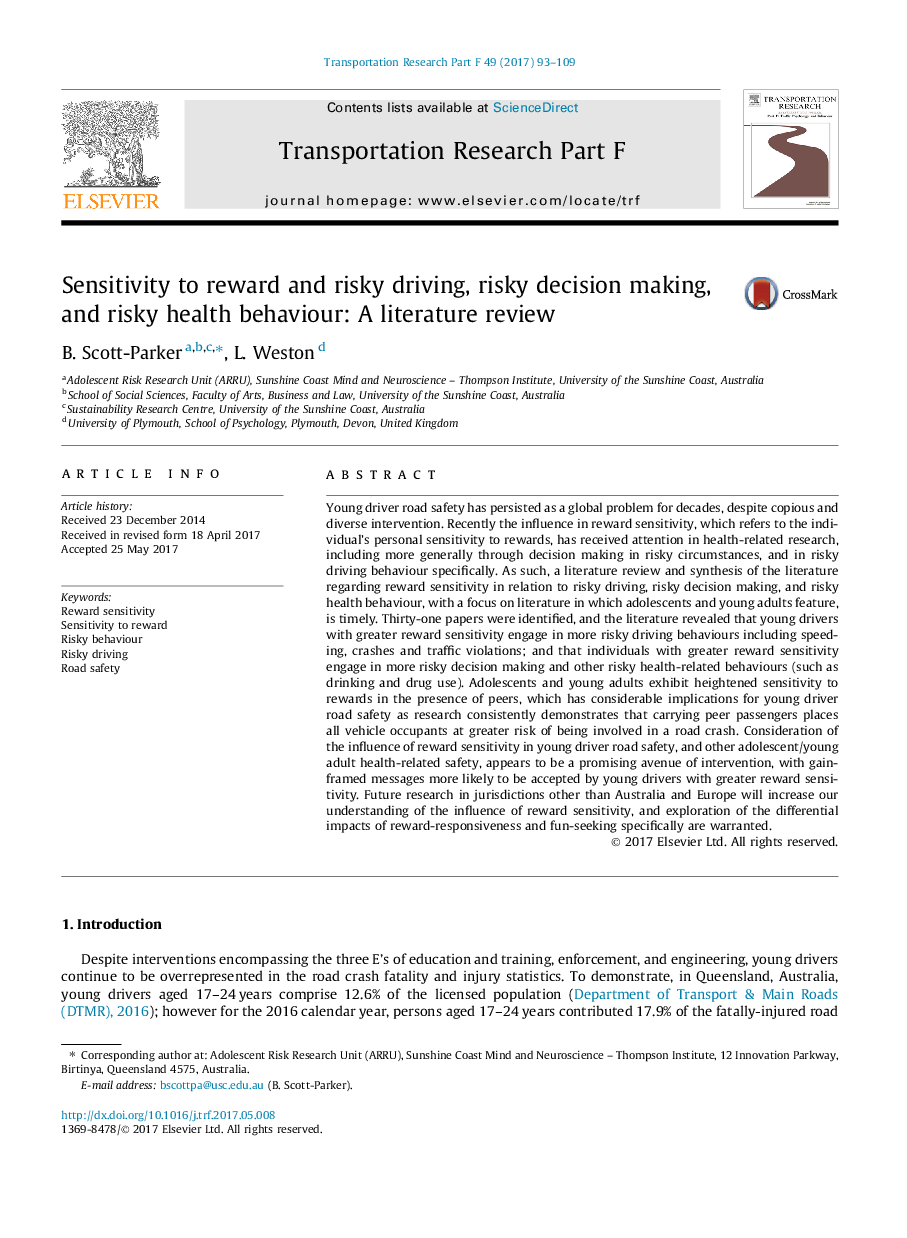ترجمه فارسی عنوان مقاله
حساسیت به پاداش و رانندگی خطرناک، تصمیم گیری خطرناک و رفتار بهداشتی مخاطره آمیز: بررسی ادبیات
عنوان انگلیسی
Sensitivity to reward and risky driving, risky decision making, and risky health behaviour: A literature review
| کد مقاله | سال انتشار | تعداد صفحات مقاله انگلیسی |
|---|---|---|
| 112704 | 2017 | 17 صفحه PDF |
منبع

Publisher : Elsevier - Science Direct (الزویر - ساینس دایرکت)
Journal : Transportation Research Part F: Traffic Psychology and Behaviour, Volume 49, August 2017, Pages 93-109
ترجمه کلمات کلیدی
حساسیت پاداش، حساسیت به پاداش، رفتار مخاطره آمیز، رانندگی خطرناک، ایمنی جاده،
کلمات کلیدی انگلیسی
Reward sensitivity; Sensitivity to reward; Risky behaviour; Risky driving; Road safety;

